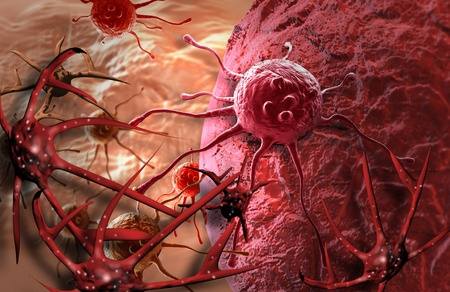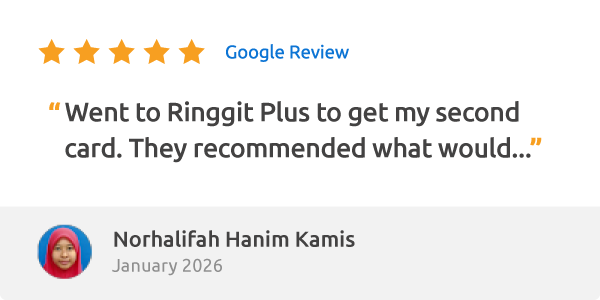Frequently Asked Questions About Cancer
Cancer is one of the leading causes of death in Malaysia, with over 30,000 cases annually. According to the World Health Organisation’s Globocan 2008 report, the most common cancers in Malaysia are breast, colorectal and lung cancer.
The risk of cancer is very real. Cancer statistics estimate that one in four Malaysians (1:4) will develop cancer by the age of 75. The deadly malady knows no race or religion, therefore it is best we stay thoroughly informed.
What is cancer?

Cancer is a disease of the body’s cells. Normal cells grow and multiply in a controlled way, but if something causes a mistake in the cell’s genetic blueprints, this control can be lost. Collections of these cells that are growing and potentially spreading within the body, is referred to as 'cancer'.
Cancer cells that don’t spread beyond a specific area which they are formed, are called 'benign', or not harmful. If these cells spread into surrounding areas or to different parts of the body, they are known as 'malignant', or more commonly known as cancer.
How is cancer diagnosed?
The earlier cancer is diagnosed, detected and treated; the better the chance of being cured. While some cancers may be detected by routine physical self-exam, most cases of cancer are diagnosed after a tumour can be felt or when other symptoms develop. In many cases, cancer is diagnosed incidentally when evaluating or treating other medical conditions.
Cancer diagnosis starts with a thorough physical examination and complete assessment of a patient's medical history. The hospital may take samples of your blood, urine and stool to detect any abnormalities that could indicate cancer.
If there are any suspected tumours, the doctor could suggest imaging tests such as X-rays, Computed Topography (CT) scans, Magnetic Resonance Imaging (MRI) scans, ultrasound and fibre-optic endoscopic examinations to help determine the cancer’s location and size. To confirm that it is cancerous, a biopsy needs to be performed in which a tissue is removed from the suspected tumour and studied under the microscope to check for cancerous cells.

In certain scenarios, some detection methods could potentially cause more harm than good. Take mammograms for instance - they pose adverse effects to women during pregnancy. Most guidelines from non-profit organisations and medical authorities, like the U.S. Preventive Services Task Force, do not recommend mammography for women aged below 40 years old.
For persons aged 40-49, it’s better to make an informed decision with a specialist before going for a mammogram. Mammography is only recommended once in every 2 years, for women above the age of 50.
However, if you do detect any unusual lumps (commonly breast cancer related), perhaps you should consider going for a check-up.
What causes cancer?
Some cancers are lifestyle-related or caused by the things we do, for example, tobacco use, spending too much time in the sun, and eating foods contaminated with cancer-causing carcinogens. About 5% to 10% cases are hereditary and run in family genes.
Other than that, no one knows the exact causes of most cancers, though there are some correlations between the food we eat and the lifestyle we choose to live.
What are the treatments for cancer?
Treatments may vary, depending on the type and severity of the cancer, but among the most common types of cancer treatments are surgical removals, chemotherapy and radiation therapy.
Although the main goal is to cure and if that is not possible, different treatments may be used to control the cancer from spreading further. New treatment methods are being developed all the time. The advancements in molecular biology, genetics and nanotechnology will bring new medical breakthroughs that could, one day, cure cancer.
Which insurance policies cover cancer?

Most Critical Illness insurance cover cancer. Critical Illness plans basically pay out a lump-sum payment to the insured, so you can use it as an income replacement, or for medical treatment.
On the other hand, medical insurance plans, which some people refer to as 'medical cards', help to cover hospitalisation bills up to the insured amount or lifetime limit.
Are there insurance plans that cover the early stages of cancer?
Coverage varies between insurance providers. While most Critical Illness plans cover Stage III and Stage IV cancers, there are some plans which cover Stage 0 cancers, known as carcinoma-in-situ. That said, we highly recommend you to compare and measure your priorities before deciding on an insurance plan.
How early should I get a Critical Illness or Medical Insurance coverage?
Generally, premiums (payments made to insurance companies) will be lower if you sign up for a Critical Illness or Medical Insurance before 30 years old. It would be the ideal time for you to get covered. However, depending on the insurance provider’s policy, expect to go through a medical check-up at any of the insurer’s panel clinics before the approval of your insurance plan.
Thinking of getting a critical illness insurance plan? Checkout some of the best protection plans right here on RinggitPlus!

























